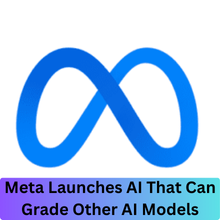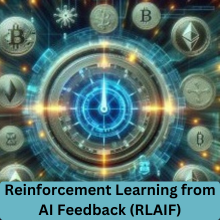
In an exciting development for the tech world, Meta has unveiled a groundbreaking AI model called the “Self-Taught Evaluator.” This innovative tool aims to streamline the AI development process by enabling artificial intelligence to evaluate its own work. This release is not just another addition to the AI landscape; it signifies a potential shift toward greater autonomy in AI systems.
What is the “Self-Taught Evaluator”?
The Self-Taught Evaluator is designed to assess the performance of other AI models. Its primary goal? To reduce human involvement in the evaluation process, which is often costly and inefficient. This model uses advanced algorithms to make reliable judgments about responses generated by AI systems, marking a significant advancement in self-evaluation technology.
The Chain of Thought Technique
One of the standout features of the Self-Taught Evaluator is its reliance on the “chain of thought” technique. This approach involves breaking down complex problems into smaller, manageable steps. Think of it as guiding the AI through a maze by providing a clear path, which ultimately enhances the accuracy of its responses. This method has proven especially beneficial in tackling challenging subjects like science, coding, and math.
AI-Generated Training Data
What makes this model even more intriguing is its training method. Meta’s researchers utilized entirely AI-generated data to train the evaluator model, effectively eliminating the need for human input during this stage. This is a game-changer because it highlights the model’s capability to learn and improve without human biases or errors.
Potential Impact on AI Development
The ability of AI to evaluate itself opens up exciting possibilities for the future. Many experts envision a landscape filled with autonomous AI agents—intelligent systems capable of learning from their own mistakes and evolving over time.
Benefits of Reduced Human Involvement
Reducing human involvement in AI development can lead to significant benefits. For starters, it can cut down on the costs associated with hiring specialized annotators. Moreover, by minimizing human errors, we can enhance the accuracy of AI evaluations, making them more reliable than ever.
Challenges in AI Self-Evaluation
However, it’s not all sunshine and rainbows. Relying heavily on AI for evaluations poses some risks. For one, there’s the potential for over-reliance, which could lead to accountability issues if the AI makes mistakes. Ensuring that these systems are robust and can be held accountable is crucial.
Comparison with Other Companies
Meta isn’t the only player in this space. Companies like Google and Anthropic are also exploring similar concepts. However, a key difference lies in their approach to public model releases. While Google and Anthropic tend to keep their models under wraps, Meta has chosen to make its model accessible for public use, setting a new precedent.
Reinforcement Learning from AI Feedback (RLAIF)
This model also fits into a broader category known as Reinforcement Learning from AI Feedback (RLAIF). Unlike traditional methods, which rely heavily on human feedback, RLAIF utilizes AI to provide evaluations. This not only enhances efficiency but also fosters a new way of thinking about AI development.
The Future of AI Technology
Looking ahead, the future of AI technology seems promising. Experts predict that self-evaluating models will play a pivotal role in the evolution of AI capabilities over the next decade. As these systems become increasingly sophisticated, we may find ourselves in a world where AI can tackle a vast array of tasks with minimal human intervention.
Ethical Considerations
With great power comes great responsibility, and the rise of self-evaluating AI models raises important ethical questions. As we move forward, it’s crucial to consider the implications of granting AI such autonomy. Oversight will be necessary to ensure that these systems operate within ethical boundaries and maintain accountability.
Conclusion
In conclusion, Meta’s release of the Self-Taught Evaluator marks a significant milestone in the world of AI development. By enabling AI to evaluate its own work, we are one step closer to creating autonomous systems that can learn and improve independently. As we continue to explore the potential of AI, it’s essential to strike a balance between innovation and ethical considerations.
FAQs
What is Meta’s “Self-Taught Evaluator”?
It is an AI model designed to assess and evaluate the performance of other AI systems, reducing human involvement in the evaluation process.
How does the chain of thought technique work?
This technique breaks down complex problems into smaller, manageable steps, enhancing the accuracy of AI responses.
Why is AI self-evaluation important?
It reduces costs, enhances accuracy, and allows AI to learn from its own mistakes, paving the way for autonomous systems.
What are the risks of reducing human involvement in AI?
Potential risks include over-reliance on AI evaluations and accountability issues if mistakes occur.
How does Meta’s model differ from those of other companies?
Unlike Google and Anthropic, which keep their models private, Meta has chosen to make its Self-Taught Evaluator publicly accessible.

